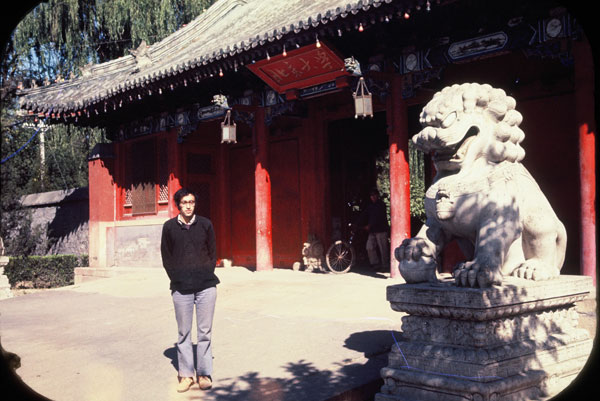

 |
|
[Photo provided to China Daily] |
Tense times
Despite the restoration of cultural exchange, 1973 was still during the period of China's "cultural revolution". "I visited all of my classmates after we finished our exchange program in China," he acknowledges. None of them had taken part in political movements before, during or after their China stay.
"We came to China in the political sensitive period, but we studied here mainly out of curiosity," he says.
Arriving in China after a 22-hour flight, Bellassen got his first sight of Beijing. A few people riding late in the night, as he recalls. A portrait of Chairman Mao hung on the airport's terminal building.
In the 1970s, Chinese people were still curious about any foreigners in the "cultural revolution" atmosphere. "One day I went to Wangfujing, Beijing's commercial district, to buy a pair of shoes," he says.
"I got hundreds of people's attention in the street."
In order to understand China and the "cultural revolution", Bellassen and his French classmates persisted in applying for permission to travel to rural communes and factories and work there. They could not get permits because of their foreign identities.
When it came to his second academic year of 1974, he was given a chance to go to Sijiqing People's commune in Beijing's western suburb and live together with local farmers and workers.
"At first, I could not bear the breakfast of cornmeal porridge," he says. "In the first few weeks, I ate meat three times only." Eventually, though, he changed. "The ordinary cornmeal porridge made me forget about baguettes and cheese and I came to know the original life of China."
Even now living in Paris, he still prefers Chinese breakfast.